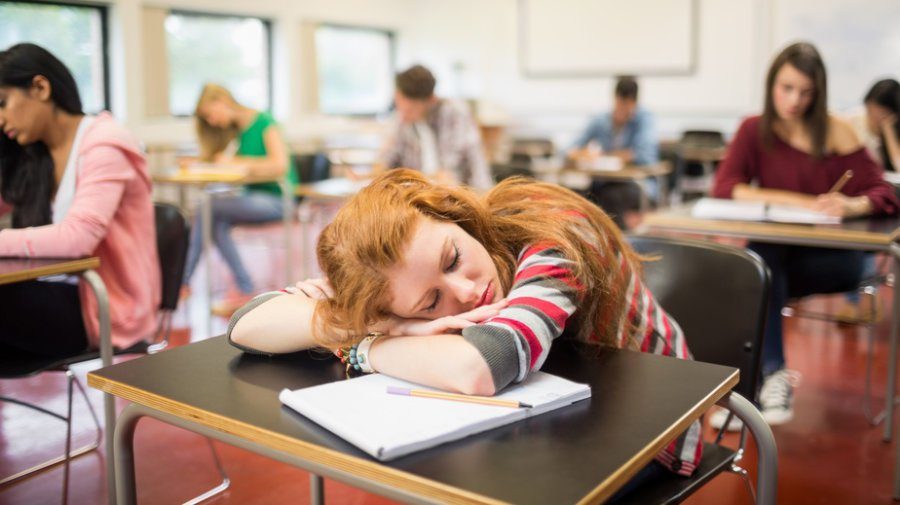Sleep vs. School
The question of whether school should start later or not, is a controversial topic that has come up many times and in many ways. Getting up early and staying up late means that most teens are not getting enough of the sleep that they really need.
The lack of sleep is not without consequences and is actually dangerous. Researchers have found that teens who get less than seven hours of sleep are more likely to be overweight, depressed, have worse grades, make bad decisions like driving drunk, or doing drugs, and even consider attempting suicide.
In 2014, the American Academy of Pediatrics recommended that “Schools start no earlier than 8:30am so that teens can get the recommended 8.5 to 9.5 hours of sleep a night.” It does not seem like people have really listened to this advice, since in a recent survey of the 50 states, 42 of them reported that 75-100 percent of their schools start before 8:30.
The circadian rhythm or the body clock of teens is different from that of adults. The bodies of teenagers don’t start making melatonin, the hormone that helps us fall asleep until later. Meaning that school start times are actually messing with their sleep schedules.
It seems like each time this issue is brought up, the same excuses pop up with it. Some argue that teenagers should be able to handle it because they are older and others argue that pushing back high school start times would mean that sports and extracurriculars would end late, and so there is no point. But as Anne Wheaton, an epidemiologist in the CDC’s division of population health says: “For some reason, they chose to start the high school earliest, which really does fight against the biology of the high school students. They really can’t get up early enough.”
As local pediatrician, Elizabeth Herz said “People feel that it affects the quality of life by decreasing their ability to participate in activities they enjoy, and a lack of sleep can affect the immune system, making people more susceptible to common illnesses.” Whether or not school systems across America listen to pediatricians and experts is a mystery, however one thing is for sure; teens across America would thank them if they did.


Lilybeth Padilla • Mar 24, 2017 at 8:16 am
When you stated your reasons in your claim you didn’t have evidence on how high schoolers make bad decisions.
You should interview another person to have more evidence to support your claim.
I like this article because it had a someone else view on the problem and how you interviewed the person and used there view. The last thing I like about your article is that you used another article to support your claim on how many hours do high schoolers actually sleep.
Jordan rank • Mar 24, 2017 at 8:02 am
1. You should of started off your introduction with a hook in the beginning like something like an alarm going off to start of there morning etc.
2. You should also include the districts who changed there school times to later because of sleep deprivation. There should be more points from the other side for the rebuttal and then end with your strong points about why sleep is healthy etc.
3. I like your body paragraphs, I like how you used statistics and shows the percentage of schools who changed times. Your grammar in this editorial is also good.